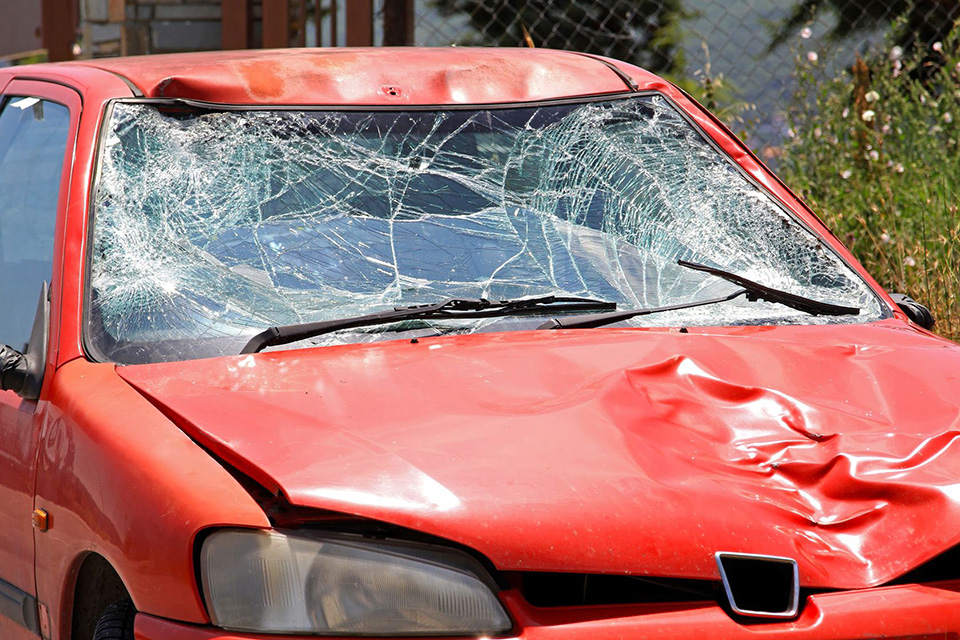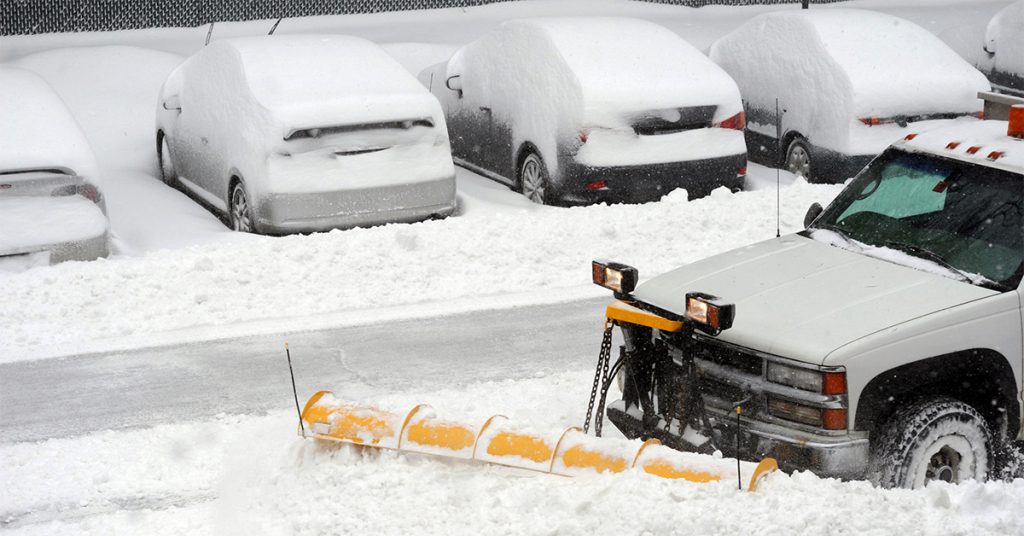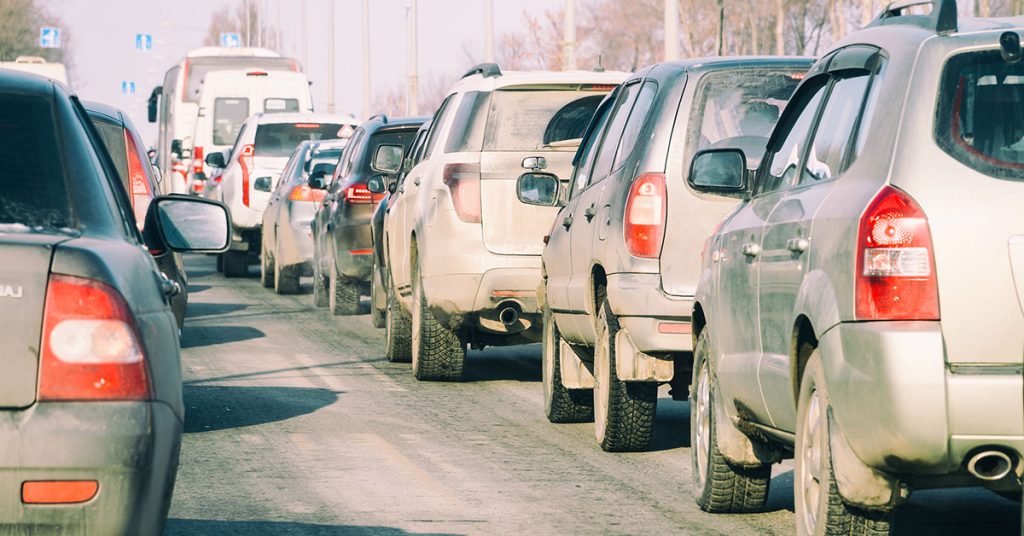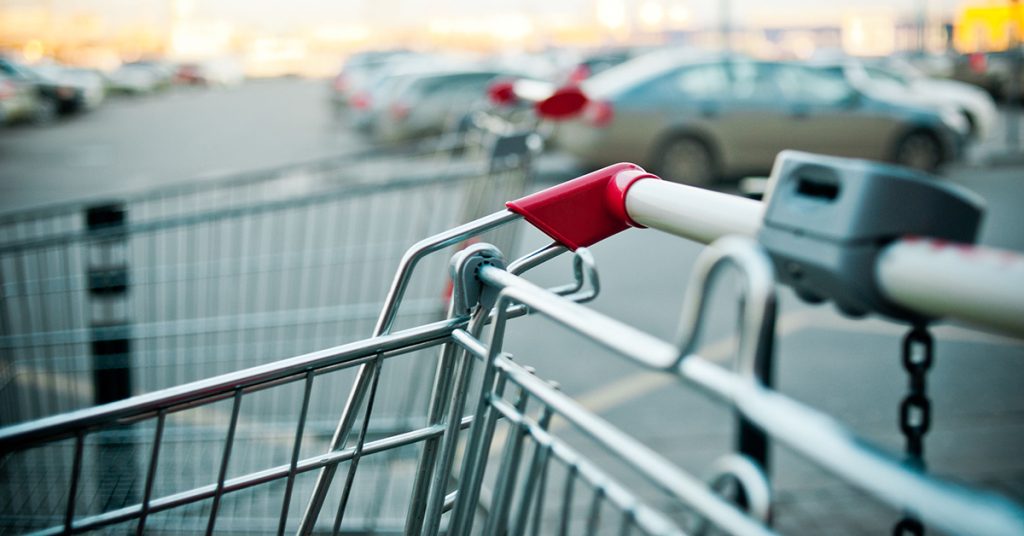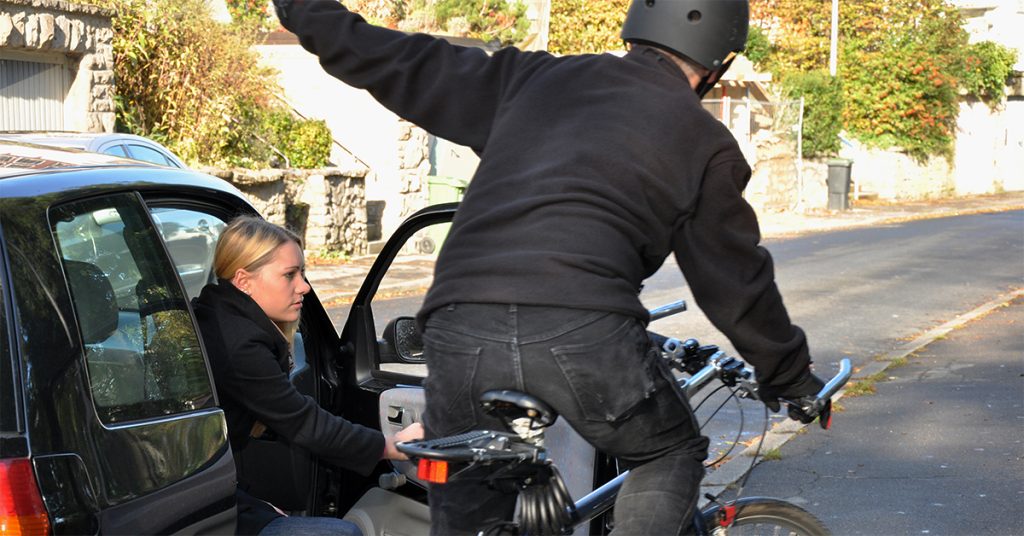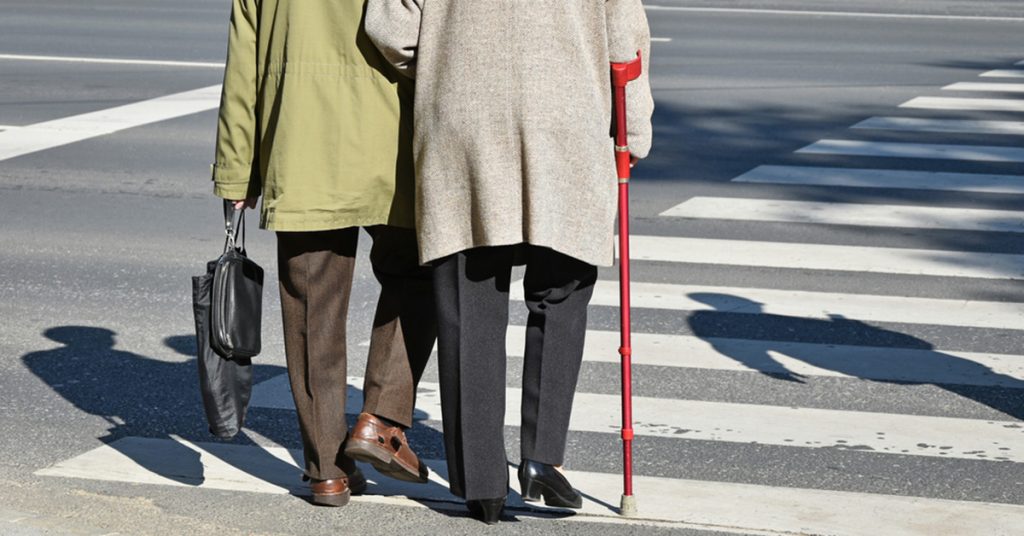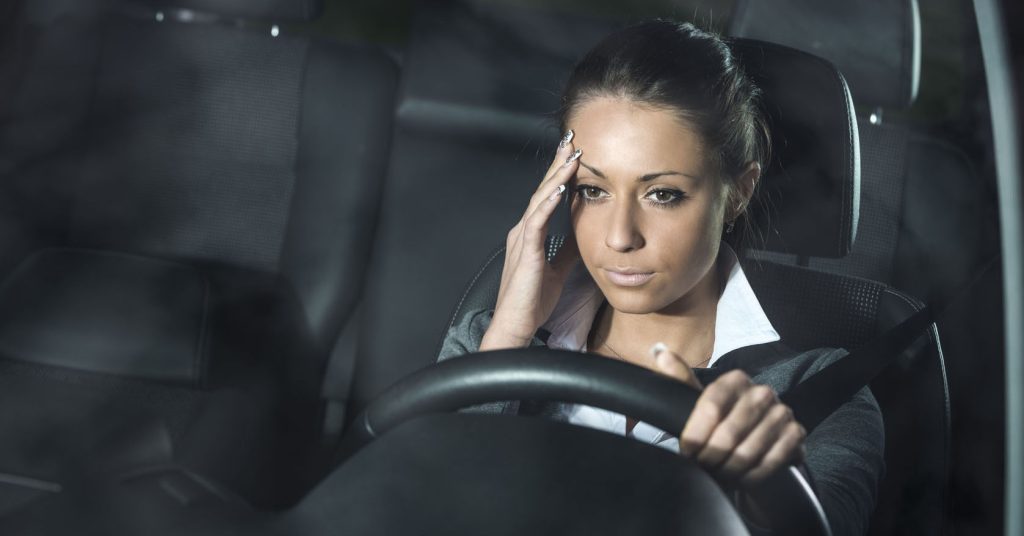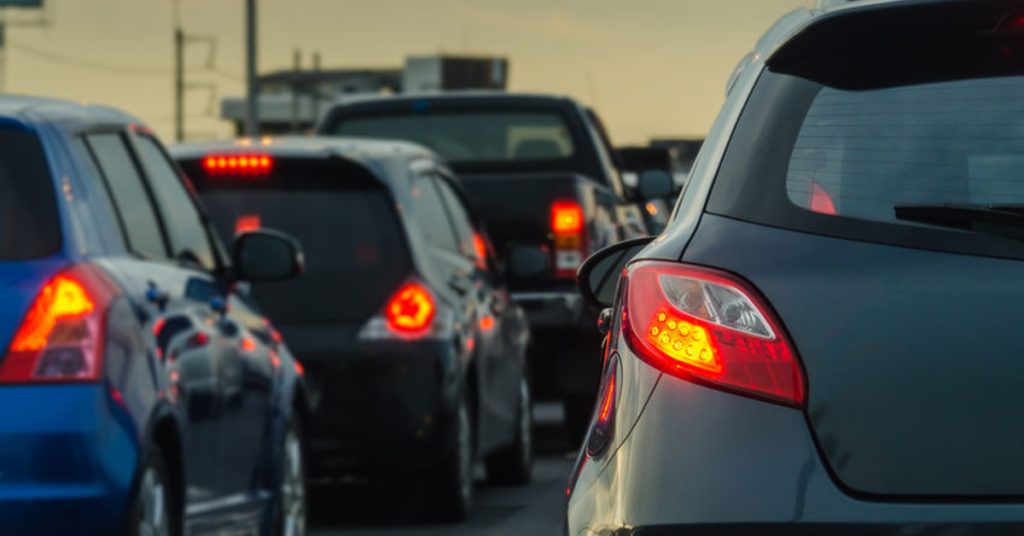Motor Vehicle Accidents
Ignition Interlock Devices for First-Time Drunk Drivers is Back Before the Massachusetts Legislature
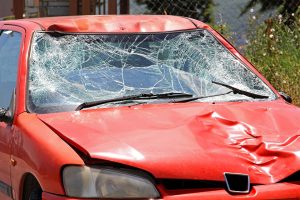
The Massachusetts Legislature is being asked to reconsider an ignition interlock law for first-time OUI offenders.
A proposal to expand use of ignition interlock devices for drunk drivers is back before the Massachusetts Legislature.
Gov. Charlie Baker and Lt. Gov. Karyn Polito’s transportation bill includes the proposal to mandate ignition interlocks for first-time convicted drunk drivers. Currently, Massachusetts drivers convicted for the first time may seek hardship licenses allowing them to travel for work and specific purposes. Baker and Polito’s proposal would also put ignition interlock devices in their vehicles for at least six months following conviction. The devices test whether drivers are under the influence and if so, prevents them from starting their vehicle.
In Massachusetts, it is illegal to operate a motor vehicle with a blood alcohol concentration of .08 or higher, under M.G.L. c.90 § 24. The limit is .02 for drivers under 21. If police suspect drivers are intoxicated, they can be stopped and given a breathalyzer test. Drivers charged with operating under the influence can face a loss or suspension of their Massachusetts driver’s license and fines. Alcohol education training is a requirement in Massachusetts.
In addition, drivers can be sentenced to serve jail time, which is more common for subsequent offenses or when their actions cause death or serious injury.
As for drivers with more than one drunk driving offense, Massachusetts law does require them to use ignition interlock devices for a period of two years. M.G.L. c.90 § 241/2.
MADD and safety advocates say this is too little. And it falls short of the National Highway Traffic Safety Administration’s recommendation, which calls on states to require first-time offenders to use the devices and establish a minimum length of time for use. Twenty nine states have done so, according to the National Conference of State Legislatures.
Drunk driving continues to be a serious problem, killing almost 30 people daily across the U.S. (Source: NHTSA). Meanwhile, the state of Massachusetts reports about 150 people are being killed by drunk drivers each year. These drivers have a blood alcohol concentration of .01 and higher. Eighty percent of the deaths were caused by drivers operating with a blood alcohol concentration of .08 or higher.
Massachusetts Law: Drunk Drivers and Other Responsible Parties in Liquor Liability and Drunk Driving Injury Cases
In Massachusetts, when drunk driving leads to injury, a driver can be convicted of operating under the influence by the criminal courts.
Further, they can be held liable and have to pay monetary damages to the victim or multiple victims. Our Boston car crash attorneys have handled liquor liability cases for injury victims and their families for more than 25 years in Massachusetts. Our attorneys are experienced in investigating these crashes and identifying all the parties who may share responsibility. In addition to drunk drivers, commercial establishments such as bars and restaurants have a responsibility not to serve patrons who are already intoxicated. This area of law is known as dram shop liability.
Individuals also carry responsibility when minors consume alcohol at their homes under social host liability law. When someone provides alcohol to a minor – or their teenager does so – it’s a consequential offense in Massachusetts. A parent can be held liable and have to compensate the injured person or persons. Parents can also face criminal charges leading to fines and jail time.
About Breakstone, White & Gluck
Breakstone, White & Gluck is a Boston law firm specializing in representing individuals injured in car accidents, truck crashes and other collisions caused by negligent and reckless drivers. Our lawyers are experienced in representing drivers, pedestrians, cyclists and motorcyclists injured across Massachusetts, including in Boston, Cambridge, Somerville, Everett, Lynn, Newton and Waltham.
For a free legal consultation, contact our car accident lawyers at 800-379-1244 or 617-723-7676 or use our contact form.
Snow Plow Accidents Claim Lives in Massachusetts and Illinois
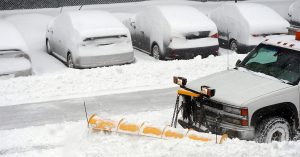
A snow plow crash killed an Easton man this week. Police are currently investigating.
As we battled snow and cold, there were two fatal snow plow accidents this week, including one death here in Massachusetts. In Easton, a snow plow hit and killed a 64-year-old man who was changing a tire on Route 138. Meanwhile, in Illinois, another man was snow blowing his driveway when a plow truck backed into him. Both men were pronounced dead on the scene.
These were not the only snow plow accidents, either. In Johnson County, Kansas, a snowplow driver veered off the road and died in a single-car crash. In New York, a state DOT snow plow and vehicle collided in the Town of Aurelius in Cayuga County. Traffic was stopped as two people were airlifted for medical treatment.
Easton Snow Plow Accident
NBC Boston reports the 64-year-old Easton man was hit about 1 p.m. Wednesday on Washington Street, which is Route 138. The victim parked his van on the street, along the breakdown lane on the northbound lane, when the passenger truck plow approached. The victim was fixing the rear tire on the driver’s side when he was hit. According to the Brockton Enterprise, police arrived to find broken vehicle parts, a pair of sneakers and other debris littering the street. The car jack, tire and van were left behind.
Neighbors witnessed the horrific crash and told NBC Boston that the victim had been kneeling down when he was hit by the plow’s blade, then dragged. One homeowner has turned over home surveillance video to help police with the investigation, according to the news station.
Police are still investigating whether the plow driver will face criminal charges. The police chief told NBC Boston that one focus of the investigation will be where the victim was at the time of the crash, whether he was in the roadway or off the roadway.
Police have not released the driver’s name, but said he remained on the scene and cooperated with the investigation.
Illinois Snow Plow Accident Kills Man
In the Chicago suburbs, there was another sad story in the Village of Libertyville. A 75-year-old man was killed Monday morning while clearing snow and ice from his driveway. According to news reports, the victim may have been snow blowing his driveway when a snow plow driver backed into him. The crash happened in a cul de sac in the 600 block of Bridle Court in the Village of Libertyville.
The man was pronounced dead on the scene and the plow driver was placed on paid administrative leave pending an investigation by the Lake County Major Crash Assistance Team began investigation.
Snow Plow Truck Accidents in Massachusetts
Snow plow truck accidents happen every year in Massachusetts and they are often fatal. Snow plow crashes can seriously injure drivers and passengers. But many snow plow crashes injure pedestrians.
Snow plow drivers in Massachusetts have a responsibility to obey all traffic laws and exercise caution, always watching for pedestrians and other vehicles.
They must meet certain requirements to clear snow. First, snow plow drivers must apply for a commercial driver’s license (CDL). Second, they must buy commercial auto insurance, along with plow equipment. Finally, the Registry of Motor Vehicles issues special snow removal plates which they must use. Yet, beyond this, there is little oversight, including no restriction on how many hours they are allowed to work.
Plow drivers can work for private companies and contract with cities, towns, the state or private businesses; they can be owned and operated by cities and towns or they can be owned and operated by the Massachusetts Department of Transportation.
Over the years, Massachusetts has seen numerous snow plow accidents lead to serious injuries and death. Causes of snow plow accidents can include drowsy driving, checking a cell phone and inexperience with the heavy machinery.
Snow plow drivers have faced criminal charges and civil lawsuits in Massachusetts. In 2016, a plow driver was charged with manslaughter in the death of a 60-year-old man he struck in Medford. A year earlier, the victim left Bread & Circus Bakery – a Whole Foods Market company – and walked across the store’s parking lot. Police allege the plow driver had been smoking marijuana prior to backing up and running over the worker.
Another tragedy came in February 2015, when a 21-year-old Fitchburg woman was killed in a snow plow accident as she walked home from a local Market Basket, where she worked. Her family filed a wrongful death lawsuit against the snow plow driver and his company, Einstein’s Inc., along with his insurance carrier, Plymouth Rock Assurance Corp.
According to the Sentinel & Enterprise of Fitchburg, the lawsuit alleged the driver had operated negligently, recklessly and carelessly and created a safety risk on public roads and highways and that the company had breached its duty to public to ensure the driver was operating safely.
If you or a loved one have been injured by the negligence of a snow plow driver in Massachusetts, our Boston personal injury lawyers can help you learn your rights for seeking compensation.
For a Free Legal Consultation, Call Breakstone, White & Gluck of Boston at 800-379-1244 or 617-723-7676.
Hands-Free Cell Phone Law Proposed in Massachusetts

Hand-held cell phone use would become illegal under new legislation proposed by the Massachusetts’ governor’s office.
Many of us expected Gov. Charlie Baker and Lt. Gov. Karyn Polito would file legislation to limit drivers to hands-free cell phone use this year. But the Baker-Polito Administration went much further last week when it filed, “An Act Relative to Improving Safety on the Roads of the Commonwealth.” In announcing the legislation, the administration reported more than 15,000 people were seriously injured in Massachusetts traffic accidents between 2012 and 2016. Another 1,820 people were killed, including 14 road workers.
The Massachusetts Legislature now has a great deal to consider in coming months. Because these proposals will impact us all, we encourage you to follow the media coverage and share your thoughts with your local legislators and town officials.
Cell Phones. In 2010, Massachusetts banned texting while driving. There have been similar proposals, but no action on handheld cell phones. Meanwhile, distracted driving accidents have increased, claiming 3,450 lives in 2016, according to the NHTSA.
The Baker-Polito proposal would require drivers who use electronic devices to go “hands-free” and make use of hands-free driving equipment, such as Bluetooth. Drivers would have to use voice commands instead of reaching for hand-held cell phones. The proposal does allow “a single tap or swipe to activate, deactivate or initiate hands-free mode.”
If this proposal is approved, Massachusetts would be the 16th state to have a hands-free cell phone law, joining all the New England states.
Primary Seat Belt Enforcement. According to the GHSA, 34 states have primary seat belt laws for drivers and front-seat passengers.
Massachusetts has a secondary seat belt law, meaning police officers cannot simply pull a motor vehicle over for a seat belt violation. A police officer must first observe another moving violation, such as speeding or running a red light.
A primary enforcement law for seat belts has been a hard sell in Massachusetts. But we urge you and your family to use the debate as a reminder to wear a seat belt every time you ride. According to the NHTSA, seat belts saved an estimated 14,668 lives in traffic accidents in 2016. Wearing a seat belt is an easy choice we can all make to protect ourselves.
Road Workers. The Massachusetts Department of Transportation would be granted authority to lower speed limits in construction zones. Fines would double in areas where workers are.
Truck Sideguards. In 2014, the Boston City Council approved a truck sideguard ordinance for all city-contracted trucks – the first in the nation. The governor’s proposal builds on this, mandating sideguards for all state-owned trucks and vehicles over 10,000 pounds. Along with sideguards, trucks must be equipped with convex and cross-over mirrors to increase driver’s visibility. If approved, trucks would have to be equipped by Jan. 1, 2020. All state and municipal contractors would have to do the same by 2022.
The sideguards are intended to protect the area between the truck’s front and back wheels, blocking it off to cyclists and pedestrians who can be caught underneath. Massachusetts has seen numerous cyclists who have been seriously injured or killed by these types of truck accidents.
Electric Scooters. The proposal would start regulating electric scooters like bicycles and allow scooter rentals to move ahead in local communities. This has been a point of contention in the Boston area as bikeshare and rideshare companies are eager to start scooter rentals here. Cities have argued that scooters are illegal because they don’t have directional signals as stated under current state law.
Ignition Interlock Devices. When drivers are convicted of operating under the influence or drunk driving in Massachusetts, they are permitted to apply for a hardship license. With this proposal, anyone who applies for a hardship license must use an ignition interlock device for a minimum of six months. The proposal also clarifies that the Registry of Motor Vehicles has authority to impose penalties if drivers attempt to drive after consuming alcohol or tamper with a device.
About Breakstone, White & Gluck – Boston Car Accident Lawyers
With more than 100 years combined experience, Breakstone, White & Gluck specializes in representing individuals injured in car accidents, truck accidents and other catastrophic collisions. If you have been injured, learn your rights at 800-379-1244 or 617-723-7676. You can also use our contact form.
Drive Safely: Holiday Dash in Boston Starts Mid-Week
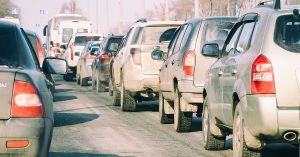
As a record-number of holiday travelers hit the road, Boston will be especially hard hit this week, according to AAA’s travel forecast.
However you celebrate, we hope you enjoy a festive holiday season, filled with friends, family, holiday events or volunteering.
But most of all, here at Breakstone, White & Gluck, our attorneys hope you commit to travel safely during the holidays. While it’s the season for giving, Thanksgiving to New Year’s brings some of the most dangerous days on the roads.
AAA is forecasting a record-breaking 112.5 million holiday travelers – or 1 in 3 Americans. This represents a 4.4 percent increase over last year. More than 102 million will travel by car, the highest number in 17 years. The forecast holds bad news for Boston though. On Wednesday afternoon, we could end up with one of the longest commutes in the nation.
Tips for driving safely for the holiday season:
Plan for Boston holiday travelers. AAA and INRIX forecast this Thursday, Dec. 20th, will be the most congested day nationwide. Boston is on a list of 10 holiday hot spots, with the worst travel expected on Wednesday, Dec. 19th. The absolute worst time to drive is 3:30 to 4:30 p.m. that day and you can expect the commute to take 3.5 times as long. It’s hard to believe the forecast is so terrible. It’s based on historical data and recent travel trends.
Unfortunately, this heavy traffic won’t just impact those starting their holiday commute; it will also challenge workers, school buses, delivery services and just about all of us.
Make a plan. Take public transportation if you can. Adjust your work hours if your employer allows it. Services like Waze and Mass511 can help you navigate and take away some of the stress.
Buckle up. Wear your seat belt at all times. When driving others, ask if they are buckled up before you start moving. People really need the reminder. Even after years of safety campaigns, nearly 10 percent of Americans are still not wearing seat belts, according to the National Highway Traffic Safety Administration (NHTSA). In 2016, seat belts could have saved more than 2,400 people killed in car accidents (Source: NHTSA).
The day before you travel, also take time to check your children’s car seats, so they are properly secured.
Plan enough space for holiday gifts. When traveling with gifts or food, make sure you leave enough space so you can see through your windows.
Watch your speed, especially near pedestrians. Speeding is involved in one-third of all traffic fatalities, according to the NHTSA. It is also a leading cause in car accidents which injure pedestrians. Commit to traveling the speed limit or slower if you need to adjust for weather conditions, dark roads or unfamiliar areas. Have patience in parking lots and remember, during the holiday season, pedestrians may be out later at night.
Drive sober. If you celebrate outside your home, our suggestion is to skip the alcohol and focus instead on all you are grateful for this year. If you plan to drink, choose a designated driver whom you trust not to drink. As a backup, install the Uber and Lyft apps on your phone.
Drunk drivers killed 10,874 people in motor vehicle crashes in 2017, representing 29 percent of all traffic fatalities in the U.S., according to the NHTSA. Here in Massachusetts, drunk drivers caused 34 percent of all traffic deaths.
As personal injury attorneys who represent those injured by drunk drivers, we know firsthand that when someone is killed by a drunk driver, nothing is ever the same for the family. Drunk driving accidents are senseless, entirely preventable had the driver just made a better decision.
As for drunk drivers, they can be criminally charged and expect to face a civil lawsuit, as can others in certain cases, including bars and restaurants in liquor liability cases.
Marijuana will be in greater supply this year, after retail stores have opened for recreational marijuana sales in Massachusetts. Use good judgment. Do not consume marijuana when you are driving. Users are about 25 percent more likely to crash than other drivers, according to the Centers for Disease Control and Prevention.
No distracted driving. We cannot say it enough: it’s critical to put your cell phone away when you are driving, especially in heavy traffic. Tell your loved ones your phone is off the hook until you stop driving and turn your engine off. Stay committed to that. Don’t engage in texting while driving, reading e-mail or checking Facebook when driving.
Have your directions ready in advance. If you are driving long distance with children, make sure you have snacks, books, coloring sets or games prepared. If possible, drive with another adult so they can respond to your children and make an emergency call if necessary.
Finally, plan ahead and decide where you want to take rest breaks.
Emergency supplies. Do everything you can to ensure you reach your destination safely. Carry cash, a credit card and an emergency kit containing: a mobile phone charger, a first-aid kit, water and snacks, a flashlight and extra batteries, warning flares, jumper cables and a basic tool kit. And don’t forget ice scrapers, shovels and blankets.
Additional resources:
AAA’s Holiday Travel Forecast for 2018
National Highway Traffic Safety Administration
2017 Data: Alcohol-Impaired Driving, NHTSA
About Breakstone, White & Gluck
Free Legal Consultation: 800-379-1244
For more than 25 years, Breakstone, White & Gluck has represented those injured by car accidents in Massachusetts. Our Boston car accident lawyers are known for our top results for clients and their families. We have consistently been recognized for our results, including by Massachusetts Super Lawyers, Top 100 New England Super Lawyers and Top 100 Massachusetts Super Lawyers.
If you have been injured, learn your legal rights. For a free legal consultation, contact Breakstone, White & Gluck at 800-379-1244 or 617-723-7676. You can also use our contact form.
Holiday Season Brings Rise in Car Crashes, Parking Lot Accidents

Parking lot crashes are more likely in Boston and Massachusetts this time of year, as holiday shoppers are out. What can you do to prevent accidents? Put down your cell phone, slow down and always watch for pedestrians.
When you finish your holiday shopping, and start to head home, you may be tempted to pick up your cell phone and call someone. But the parking lot is not a safe place and the holidays are not the season.
Unfortunately, car accident claims typically rise during the holidays, as many of us head out shopping or to enjoy holiday lights. According to the National Safety Council (NSC), the increase begins around Thanksgiving and Black Friday. We are now approaching one of the worst stretches, the days just before Christmas.
At Breakstone, White & Gluck, our Boston personal injury lawyers urge you to travel slowly and set aside distractions to prevent parking lot crashes. Too many drivers are engaging in these distractions, according to this recent National Safety Council poll:
- 66 percent of drivers nationwide said they would make phone calls while driving through parking lots.
- Teens were less likely to make phone calls than adults (60 percent).
- Another 63 percent said they would program GPS systems.
- More than half, 56 percent, said they would text and 52 percent said they would use social media.
- Another 50 percent said yes to sending or receiving e-mails, while 49 percent said they would take photos or watch videos.
- More than half of all teens and adults also admitted they would take time for personal grooming (59 percent of teens; 53 percent of adults).
Tips for Preventing Parking Lot Crashes
- Drive slowly. Give yourself plenty of time to react to pedestrians and other vehicles.
- Do not cut through parking lots; follow the traffic lane.
- Avoid distracted driving activities, such as cell phone use, texting, listening to loud music and engaging in intense discussion.
- Choose your place to check electronics, such as before you leave the mall or store.
- Use blinker signals.
- Obey stop signs and other signs. Back out carefully.
- Always watch for pedestrians in the parking lot and at the entrance. Be extremely patient and always wait for them to reach the sidewalk before moving.
- Walk all the way around your vehicle before stepping inside, looking for pedestrians and parents with small children and baby strollers.
- Consider parking away from other cars to avoid shopping mall parking lot crashes.
The Impact: Parking Lot Crashes
The Insurance Institute for Highway Safety reports parking lot crashes account for about 20 percent of all auto claims. The NSC reports on average each year, there are 60,000 injured by parking lot crashes and 500 or more who die. Pedestrian accidents account for many parking lot crashes. Backup accidents are responsible for nearly 10 percent of fatal pedestrian crashes in parking lots.
Over the past few years, a number of pedestrian accidents in Massachusetts parking lots have been fatal. In 2017, a Trader Joe’s employee in Acton was killed. A year earlier, a 52-year-old woman died in Wilmington, outside a Rite-Aid. In 2015, a pedestrian was killed in the parking lot of the Cloverleaf Mall in Natick, just across the street from the Natick Collection (or the old Natick Mall).
Cell Phone Use and Massachusetts Law
Eight years ago, Massachusetts banned texting while driving. If you are texting or writing an e-mail and cause a car crash, you could be cited by police. If you injure another driver, the police citation could be used in a civil lawsuit to prove your negligence and you will have to pay compensation to the victim.
All but three states have texting while driving bans. Hand-held cell phone bans are a different story, with just 16 states approving bans. Hand-held cell phones are still permitted when driving in Massachusetts, but safety advocates urge drivers not to use them, especially in parking lots. In a matter of seconds, a simple act such as trying to look up GPS directions or dialing a friend can lead to a serious and possibly fatal accident.
Free Legal Consultation: 800-379-1244
If you have been injured in a parking lot crash, it is important to learn your legal rights for seeking financial compensation under Massachusetts law. Contacting a Boston car accident lawyer promptly is essential so they can act quickly to protect your rights.
At Breakstone, White & Gluck, our lawyers have over 100 years combined experience representing those injured in auto collisions. For a free legal consultation, contact us at 800-379-1244 or 617-723-7676 or use our contact form.
Dooring Crashes Continue to Endanger Cyclists in Boston, Cambridge and Other Cities
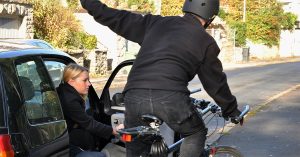 A recent New York Times article on dooring injuries shows the risks to cyclists continue, even after advocacy efforts in Boston and other cities.
A recent New York Times article on dooring injuries shows the risks to cyclists continue, even after advocacy efforts in Boston and other cities.
At Breakstone, White & Gluck, our attorneys represent cyclists who have been seriously injured in dooring accidents. While many dooring accidents happen in urban areas such as Boston, Cambridge and Somerville, dooring can happen in any community in Massachusetts. When drivers or passengers open doors without checking, cyclists can suffer devastating injuries, including broken bones, facial fractures and head injuries. Dooring crashes can be fatal.
Dooring crashes do not always make the news in Boston. But they are happening, more than any other type of bicycle accident. In fact, in November 2016, The Boston Globe reported cyclists faced a 225 percent higher risk for dooring than any other bicycle accident injury.
The Dutch Reach Moving Across the U.S.
The New York Times published, “The Dutch Reach: a No-Tech Way to Save Bicyclists’ Lives,” earlier this month. The Dutch Reach takes its name from the Netherlands, where there is a strong culture of safety for cyclists and drivers are taught to closely watch for bikes.
The New York Times interviewed Michael Charney, the Cambridge doctor who campaigned for greater use of the “Dutch Reach” method following the 2016 death of a cyclist in Inman Square. The 27-year-old woman was killed in a dooring crash. Charney’s campaign led the state of Massachusetts to add the “Dutch Reach” method to the state’s driver’s manual in 2017.
According to the article, Massachusetts and Illinois are now the only two states which have added “Dutch Reach” to the drivers’ manuals. Read the page from the Massachusetts driver’s manual.
Drivers can commit to drive safer and reduce the number of dooring crashes, according to those interviewed. Watch a video to learn the Dutch Reach method. Keep a colored ribbon or other reminder in your vehicle to help you check.
The Dutch have a great deal of education for drivers. Students actually start learning about road safety at age 10, then move to bikes before getting in a motor vehicle. Drivers typically spend about $2,700 for driver’s instruction, sitting for nearly 40 hours of instruction.
While you may not sign up for driver’s ed again. But remember that there is education online to help you. Groups such as AAA, AARP or the National Safety Council offer materials to help you avoid collisions. The League of American Bicyclists also offers materials and Bicycle Friendly Driver Training.
Here at Breakstone, White & Gluck, we also want to remind you to put down your cell phone and other distractions. With cyclists and other pedestrians around, it is not safe to reach for your cell phone as soon as you turn off the engine and just step outside without looking. Wait until you step onto the sidewalk and are out of the path of cyclists.
Injured? Free Legal Consultation for Cyclists: 800-379-1244
Breakstone, White & Gluck and our Boston personal injury lawyers specialize in bicycle accident cases. If you have been injured in a dooring accident, our experienced lawyers can represent your best interests, helping you obtain the medical treatment you need and investigating what happened to help ensure the driver is properly cited. For a free legal consultation, contact us at 800-379-1244 or 617-723-7676 or use our contact form.
New Federal Recommendations to Reduce Pedestrian Fatalities and Injuries
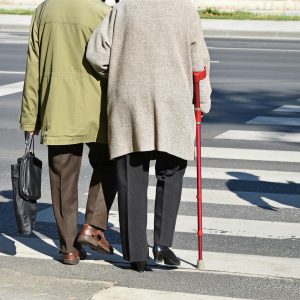 Pedestrians are facing a crisis on the roads, here in Boston and across the country. From 2009 to 2015, there was a 46 percent increase in pedestrian deaths across the U.S. (Source: National Highway Traffic Safety Administration).
Pedestrians are facing a crisis on the roads, here in Boston and across the country. From 2009 to 2015, there was a 46 percent increase in pedestrian deaths across the U.S. (Source: National Highway Traffic Safety Administration).
Now, the National Transportation Safety Board (NTSB) is stepping in with a comprehensive set of recommendations to improve safety, including: Read More
Study Says Americans Are Checking Smart Phones Every 12 Minutes

Americans are checking their cell phones every 12 minutes, according to new research. This means more distraction, including in the car.
As we wait out this snowstorm, you may be checking your smart phone more than usual. This is understandable. But how often do you check on an average weekday? One report shows Americans are checking their smart phones every 12 minutes or 80 times a day. And between Facebook, Twitter and e-mail, we all know someone who may check even more often.
Use your smart phones as often as you want – except in the car. Please consider these thoughts as you wait out the snow:
Can I receive a ticket for using my cell phone in the car in Massachusetts?
In 15 states, drivers are banned from all cell phone use in the car. In Massachusetts and 46 other states, drivers are banned from texting while driving. Massachusetts has banned texting while driving since September 30, 2010, when the Safe Driving Law took effect. However, talking on a handheld cell phone is legal in Massachusetts, even though any cell phone use can be distracting and cause a car accident.
Drivers can receive a ticket if they are stopped for texting while driving. The ticket comes with a fine of $100 for the first offense, $250 for the second offense and $500 for a third or subsequent offense. Junior operators – drivers who are 16 1/2 to 18 years old – are not allowed to use cell phones at all and face more severe penalties, starting with a 60-day license suspension, a $100 fine and attitudinal retraining for the first offense.
For the second offense, teens can lose their license for 180 days and have to pay a $250 fine. For the 3rd of subsequent offense, they lose their license for a year and have to pay a $500 fine.
How often are people using smart phones?
Very often. Asurion, a global tech company, reported on smart phone user habits last November. The company surveyed 2,000 users and found they reached for their phones on average every 12 minutes or 80 times a day. One in 10 people checked their phone every four minutes. In addition, 31 percent of survey participants had separation anxiety when away from their phones. The longest any participant was prepared to go without their phone? Four hours (that one sounds fairly reasonable to us, if you are not driving).
Participants also prioritized their smart phone over sweets. Some 62 percent said they would rather lose chocolate for a week than their cell phone for a day.
How often are people using cell phones in the car?
Zendrive, a driving analytics company, conducted a three-month analysis of three million drivers. The company reported drivers used cell phones on 88 percent of the trips analyzed. On average, drivers spend 3.5 minutes on the phone per one hour trip.
How can I stop my teenager from texting while driving?
Your teenagers may use their cell phones more often than anyone else in your house. You may want to encourage your teenager to take breaks from their smart phone so it doesn’t have such a strong hold.
You can also make your teen earn their driving privileges. Gradually build up to allowing them to drive with friends or go further than school so they understand that it is a responsibility. You can also explain the law. In Massachusetts, junior operators – drivers between 16 ½ and 18 years old – face harsher penalties for cell phone use and texting. As we mentioned above, they can lose their license on the first offense.
Then, you can share safety resources and tell them you want to save them from the life-changing experience of injuring someone or causing themselves harm. AT&T has its It Can Wait campaign, which shows stories from drivers who made the mistake and the victims who suffered the very serious consequences.
Finally, you can set a good example for your teenager. Always put your cell phone in your bag in the backseat when you are driving with them.
The good news about cell phones is you can turn them off and everyone in your family will be safer. Here are a few tips for when you step back outside after the storm:
- Turn your cell phone off while driving.
- Limit use of Bluetooth devices and infotainment systems. They are legal, but they can still be distracting.
- Take a few apps off your cell phone so you have fewer reasons to reach for your phone.
- If you play games on your cell phone, consider installing them on a different device if you have one. Play them at home.
- Do not be a distracted passenger. Make light conversation or carry a magazine if you are traveling far.
- Ask your family members to put the phone away too.
- Map out your directions before you get in the car. If you are busy, ask your teenager to help you.
- If you must check your cell phone, pull over in a safe place to check your phone. Choose a place where you can safely park and turn off your engine.
- Do not reach for your cell phone or glance at it at traffic lights or intersections.
- Finally, choose your times to engage in social media. Do not actively engage before you start commuting home. Instead, come up with a time each day (or a few times a day) when you can safely respond or chat with social media friends or check e-mail.
About Breakstone, White & Gluck
The Boston car accident lawyers at Breakstone, White & Gluck have over 100 years combined experience representing those who have been injured in motor vehicle crashes in Massachusetts. If you have been injured, learn your legal rights. For a free legal consultation, contact our attorneys at 800-379-1244 or 617-723-7676 or use our contact form.
Parents: Does Your College Student Think Drowsy Driving is Dangerous?
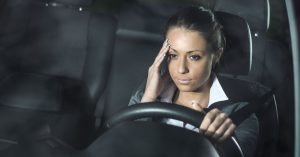
A new study shows college students are engaging in drowsy driving and do not consider it to be as dangerous as texting while driving and operating under the influence.
As a parent, you have probably talked to your college student about the risks of drunk driving and texting while driving on many occasions. What about drowsy driving? A new study reports college students are not taking this risk as seriously – even as drowsy driving causes an estimated 300,000 traffic crashes each year in the U.S.
The study was published in the February edition of the journal Sleep Health. Researchers conducted four focus groups involving 26 undergraduate students in 2016. Students were asked about their driving behaviors and perceptions about dangerous driving.
Most of the students considered themselves safe drivers, yet they viewed drowsy driving as less risky than operating under the influence of alcohol and distracted driving. Students actually said drowsy driving was “normal” and an “unavoidable part of their lives.” They admitted to drowsy driving in the past. Whether as a driver or passenger, many had actually been in some way involved in a drowsy driving car crash or near accident. In most cases, students were driving alone in the early morning or at night.
Ready to Go? Getting out of Boston Safely for Thanksgiving
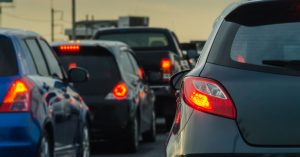
Driving to your Thanksgiving destination can be demanding. Read our tips to help you get there safely with a little less stress (if that’s possible).
We all want to know the secret to beating the Thanksgiving week traffic out of Boston. To help, we have put together a few travel tips. Please travel safely, be patient and enjoy this special time of year with your family and friends.
Traffic Apps and Resources. Here are a few websites for travelers: Boston.com/Traffic or Mass511.com. Traffic apps: Google Maps, Waze, AAA or GoTime.
Boston’s Worst Traffic Bottlenecks. AAA is reporting on the Boston region’s 10 top traffic bottlenecks for the Thanksgiving holiday weekend. They include several locations along Interstate 93, Interstate 95 and the MassPike (Interstate 90). Read the full list now before you drive. Try to avoid them if you can.
Check Your Car. Whether you drive your own car or rent a vehicle, spend a few minutes in the driver’s seat before you leave. Make sure you know how to use key features such as the blinkers, headlights and the heating system. Many new vehicles now have complex infotainment systems. Decide now what features you need to use for this trip – and which are distractions.
Essentials. Make sure your motor vehicle registration is in your glove compartment and that you have your health insurance card (or cards if you are a parent traveling with children).
Choose the Best Travel Times. AAA predicts a 3 percent increase in holiday travel this year, so we know to expect more traffic. Tuesday night and Wednesday afternoon will be the most challenging time, according to Waze. Another busy travel time is Thanksgiving Day between 11 a.m. and 1 p.m.
Plan to Stop. Take a break to fend off fatigue and let kids burn off energy. Stop once every two hours.
Gas Up and Emergency Kit. Always start your trip with a full tank of gas. Then, make sure you have a strong emergency kit, with jumper cables, a quart of motor oil, coolant, a first aid kit and a toolkit. Find your auto club membership, a safety vest, a flashlight with extra batteries and a roadside flare. Finally, pack warm clothes, blankets and your cell phone charger.
Commit to Use Your Cell Phone Safely. Our best tip for you is to turn your phone off. If you are traveling with someone, ask them to hold your cell phone and receive occasional phone calls or traffic alerts for you.
When traffic is heavy, a driver can cause a multi-car pile-up with a single glance at a cell phone – and that’s on any given day. The traffic is much worse during the Thanksgiving Week. That is why texting while driving is banned in Massachusetts and 46 other states, and why many are pushing to see Massachusetts ban all cell phone use by drivers.
No Drinking and Driving Accidents. Drunk driving accidents increase during the holiday season, starting with Thanksgiving week. Always, always travel with a designated driver who agrees not to drink. Or do not consume alcohol. No one ever regrets making this decision the next morning.


